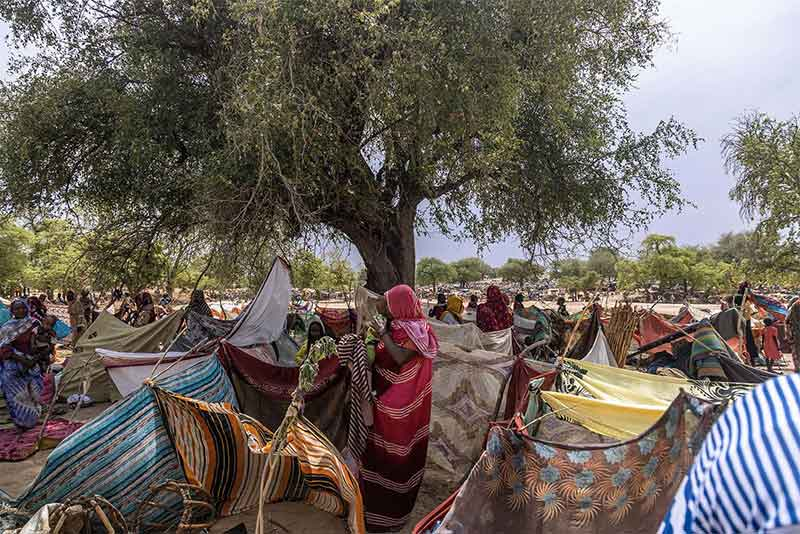
The latest civil war which erupted in Sudan in mid-April 2023 has very recently completed one year. On this occasion the UN Secretary-General Antonio Guterres stated that there is a humanitarian situation so serious in Sudan that nearly half the population needs life-saving assistance. The condition of women and children is particularly precarious.
Out of a total population of around 47 million people, nearly 8.5 million of Sudan have been displaced, nearly 6.5 million internally and 2 million externally. So difficult is the situation that a significant number of people of Sudan including women have been crossing over even to South Sudan and Chad, neighboring countries that are themselves in quite precarious situation and have humanitarian crisis of their own.
This region and beyond includes a vast stretch seriously affected in recent years by climate change, adverse weather conditions, food shortages, hunger and malnutrition. According to recent estimates 18 million people suffer from acute hunger in Sudan, 7 million in South Sudan and 3 million in Chad.
An entire generation of children is being lost to violence, displacement and hunger. While denial of even minimum norms of food and nutrition is their biggest problem, there are other problems too which may get neglected in times of acute hunger. Nearly 19 million children are estimated to be out of school.
Aid is seldom distributed on the basis of real needs of people. While Europe and the USA have been trying to mobilize nearly 160 billion dollars for Ukraine in military and economic aid, in addition to the massive amounts already given, the target for 2024 to provide humanitarian aid amounting to 2.6 billion dollars to Sudan looks increasingly beyond reach as till recent reports commitments from all over the world amounting to only about 6% of this amount had been received.
In addition to shortage of funds, in the middle of increasing violence in several areas it is becoming increasingly difficult to ensure that these regions can get access to what is available.
The civil war involving sections of army and military forces, named Sudanese Armed Forces and Rapid Support Forces, has not stopped for any considerable time despite efforts being made by different countries and mediators to secure temporary ceasefires from time to time.
This civil war has come on top of some earlier ones which caused immense distress in recent decades. One of these ultimately led to the secession of a substantial southern part of the country which emerged in the form of a separate country called South Sudan in 2011 with a population of around 11 million.
However secession did not bring any peace to either of the two countries as both have continued to suffer from high levels of internal and sectarian violence.
While a non-partisan peace force of the United Nations could have brought the situation under control in the initial phase of the break-out of the recent spell of violence in April 2023, in its absence the sporadic intervention of various countries on both sides has not been helpful from the point of bringing peace as these interventions tend to take sides and in some contexts may even aggravate violence by providing weapons or related help to the side favored by them.
Earlier the autocratic regime of Omar al Bashir which ruled Sudan for nearly three decades till 2019 was known for its atrocities and violations of human rights. Worldwide attention was focused on ethnic genocide in Durfar region. Around three hundred thousand people are estimated to have died in the violence or the humanitarian crisis resulting from this. At a time when development policies keeping in view the real needs of farmers as well as pastoral people were needed, problems were accentuated by government authorities and international agencies collaborating to spread export-oriented expensive farming which further weakened the food security of the country and spread indebtedness among farmers by increasing dependence on mechanization and expensive inputs they could not really afford. What happened in several villages was actually the opposite of what a proper adaptation strategy for climate change would require.
The people of Sudan have been helpless before the overwhelming adverse circumstances and forces that have confronted them in recent decades. An internationally supported peace and humanitarian effort is urgently needed here which not only provides immediate ceasefire and short-term relief, opening up humanitarian aid corridors even in most difficult areas, but also strengthens the sincere voices and forces of peace and development in the country which no doubt exist but have been overwhelmed by others much more powerful than them. To a substantial extent, similar help is needed by South Sudan as well.
